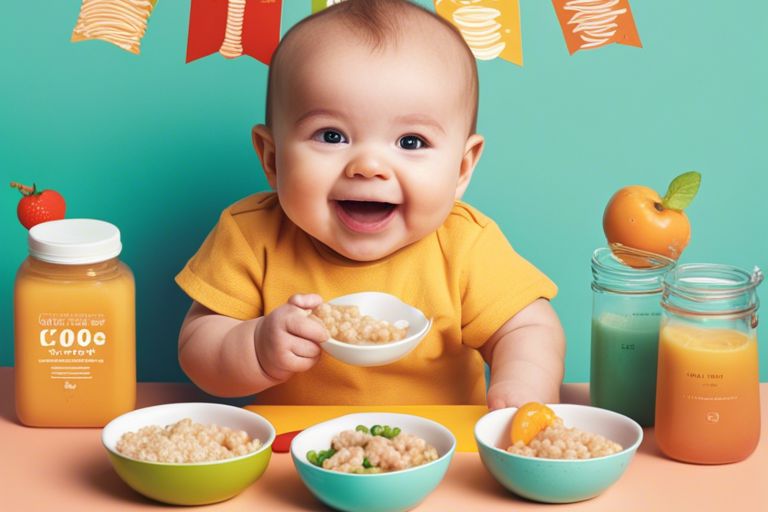tips, tricks and guides for parenthood
You have successfully introduced your baby to solid foods, but now it's time to take their chewing skills to the next level. Mastering chewing is crucial for developing mouth muscles and transitioning to a wider variety of foods. In this guide, we will explore how to upgrade your baby's food textures gradually, ensuring they can handle different consistencies safely and confidently. From purees to soft solids, we will cover everything you need to know to support your little one on their chewing journey.

For the first few months of your baby's life, they have been enjoying a diet of breastmilk or formula. But now, it's time to introduce solids. This exciting milestone opens up a whole new world of flavours and textures for your little one to explore. When starting solids, it's important to begin with smooth purees and gradually introduce textured foods to help your baby adapt to different consistencies.
Stages of readiness for texture upgrades vary from baby to baby. Some babies may take to thicker textures quickly, while others may need more time to adjust. It's crucial to observe your baby's cues and responses during mealtimes to determine if they are ready for the next stage. Look out for signs such as increased interest in food, improved hand-eye coordination, and ability to chew or mash food with gums.
Some parents find the process of transitioning their baby to textured foods a bit daunting, but with the right approach, it can be a smooth and enjoyable experience for both you and your little one.
This gradual approach to introducing new textures will help your baby develop their chewing skills and get them ready for a wider variety of foods.
A: 'Mastering Chewing - How to Upgrade Baby's Food Textures' is a guide that helps parents understand how to introduce and upgrade food textures for their babies to improve their chewing abilities.
A: You can start upgrading your baby's food textures around 6-9 months of age when they show signs of being ready for solid foods and can chew more effectively.
A: Upgrading your baby's food textures can help enhance their oral motor skills, improve their chewing abilities, and introduce them to a wider variety of tastes and nutrients.
A: You can upgrade your baby's food textures gradually by introducing mashed foods, soft solids, and chopped foods in small, manageable pieces to prevent choking hazards.
A: Some tips include staying patient and allowing your baby to explore different textures at their own pace, supervising meal times closely, and consulting a paediatrician if you have any concerns about your baby's feeding development.